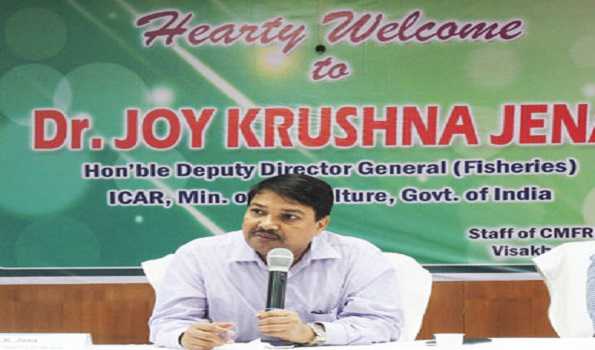
Chennai, Oct 17 – Dr. J. K. Jena, Deputy Director General of the Indian Council of Agricultural Research (ICAR), highlighted the impact of rising Sea Surface Temperature (SST) on fish distribution patterns in Indian waters. Speaking at the global conclave on mainstreaming climate change into international fisheries governance in Mahabalipuram, Dr. Jena explained that increased SST is leading to changes in the distribution of commercially important fish species, such as the Indian oil sardine and mackerel. These species are now found in regions where they were previously scarce, forming local fisheries that were previously unknown in those areas.
Moreover, the elevated SST affects fish phenology, leading to premature maturation at smaller sizes, reduced reproductive output, and decreased recruitment to the fishery. In response to these challenges, India has initiated research projects for the development of species distribution climate models and projections. These models aim to predict alterations in sea temperature, ocean currents, and other climatic elements influencing fish populations. The scientific initiative seeks to comprehend long-term patterns and develop appropriate strategies to safeguard the future of Indian fisheries.
Dr. Jena also mentioned India’s climate-smart marine fisheries value chain project, which aims to develop a prototype with critical control points to strengthen the value chain in the marine fisheries sector. Addressing the increasing trend of Harmful Algal Bloom (HAB) events in the Indian Ocean region, Dr. Jena highlighted a three-fold increase in HAB events in the Arabian Sea and a two-fold increase in the Bay of Bengal during the last two decades.
To mitigate the impact of the climate crisis, Dr. Jena suggested mariculture activities for climate-resilient species and the cultivation of fish species that can thrive in changing environmental conditions. He also proposed the use of potential fishing zones, integration of wind and solar energy in fishing vessels, enhancing the preparedness of coastal populations, and sea ranching of depleted commercial species as innovative solutions.
The global conclave also includes a separate workshop to discuss India’s preparedness for adapting to climate change in marine fisheries.”








